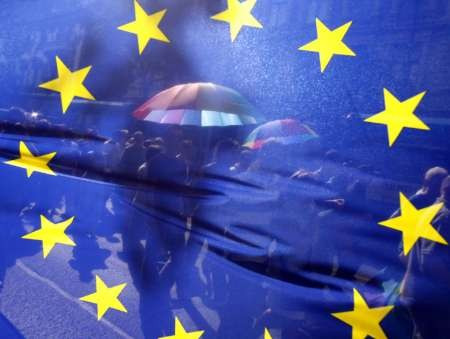The European Union could be great, but it's become an absurd, un-democratic and over-regulating menace

The European Union, a body of which I am no fan, has shown today that it is capable of being of some use to people and businesses in Europe.
The E.U.'s competition commission today slapped fines totalling nearly 800 million euros on 11 airlines found guilty of price fixing surcharges on cargo flights between 1999 and 2006.
Among those fined were British Airways (104 million euros), Air France-KLM (310 million euros) and Cargolux Airlines (79.9 million euros).
This is exactly the kind of thing that a Europe wide body can and should do better than national bodies working alone. An industry, which by its very nature crosses national boundaries, is most likely to be best regulated and best scrutinised by an organisation which also operates internationally.
The E.U. as an idea is not altogether a bad one and today's news shows it can do some apparent good, but over the years it has become an increasingly undemocratic institution, which complacently believes that it can carry on as it is with no fear of consequences or backlash.
Take the Lisbon Treaty, finally ratified last year. It began as the European Constitution, a name which immediately gave away its purpose as one of the founding documents of the United States of Europe.
However referendums in France and the Netherlands rejected the Constitution. Now in a democracy that would have meant that the whole idea was dropped, but instead Europe's leaders decided to have something of a rebranding exercise, crossed out the words "European Constitution" and put "Lisbon Treaty" instead.
If this very loose interpretation of following the democratic will were not bad enough, the E.U. went ahead and made things worse when a similar referendum in Ireland rejected the Lisbon Treaty. What did the E.U. do? Why hold the referendum again so that the people voted as their leaders wanted them to.
How is ignoring election results in Europe morally different to disregarding them in Burma, or fixing them in Iran and Afghanistan or not bothering with them at all in China, where our own E.U.-friendly Prime Minister David Cameron is planning to teach them about democracy?
There is no difference. The only thing that separates the E.U. from these countries (thankfully) is the rule of law. In the E.U. if someone opposes it or votes against it they will generally just ignore them and their opinion rather than imprison, beat, rape or murder them as happens in some other countries.
The E.U. is a fundamentally undemocratic institution, the only directly elected element is the Parliament, which has no power to initiate legislation at all and can only rubber stamp what it gets from the unelected European Commission, which is generally the home of failed politicians who could not get (re-)elected in their own countries (Peter Mandelson ring any bells?).
Then there is the President of the European Council, Herman Van Rompuy, and Baroness Ashton, Europe's High Representative of Foreign Affairs. Both given large powers (and salaries to match) but neither were elected (or even heard of) by the people of Europe. Again much has been made of the fact that Baroness Ashton has not been elected to anything in her life except to the position of Treasurer of the Campaign for Nuclear Disarmament.
Such a system cannot last and is bound to collapse sooner or later under the weight of its own absurdities and contradictions. In the mean time however it will make our worldwide commitment to democracy seem laughable and hypocritical to regimes that have less respect for human rights. After all why should Burma respect election results when the E.U. does not? And why should the people of China be given the chance to vote out their president when we cannot?
The E.U. has the potential to be a very good organisation that greatly benefits the people of Europe. It can be a forum in which nations can cooperate on international issues, it can be a free trading area, it can facilitate greater mobility (although this may not be seen as a plus to those who might lose their jobs to cheaper mobile labour) and it can catch out cartels run by airlines.
But when it ignores elections, dictates what can and cannot be sold in local markets, tells us how often councils can collect rubbish, abolishes traditional weights and measures and mummifies businesses in red tape it proves that far from becoming the U.S.E. some of its leaders want it to become, it is more like the E.U.S.S.R. that it's opponents claim it is.
© Copyright IBTimes 2024. All rights reserved.






















